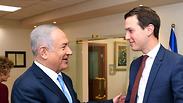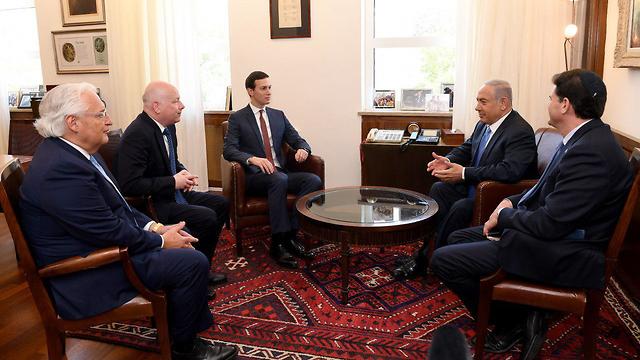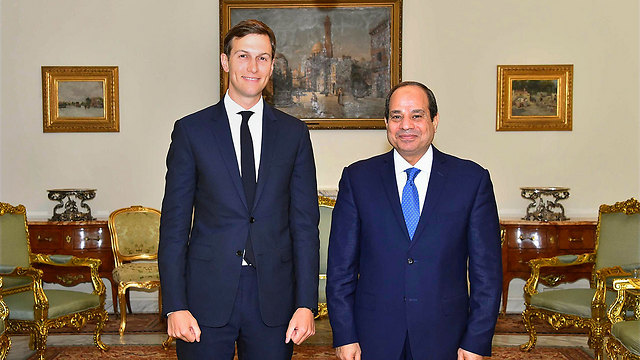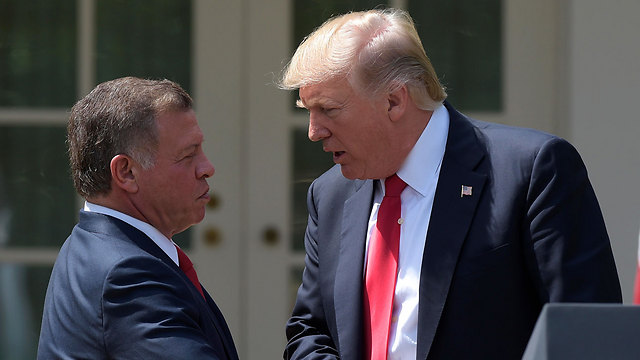
During the nearly four-hour-long meeting, Netanyahu, Kushner and Greenblatt discussed ways to alleviate the humanitarian situation in the Gaza Strip, while maintaining Israel's security, ways to advance the peace process and regional developments.
US Ambassador to Israel David Friedman and Israel's Ambassador to the US Ron Dermer also attended the meeting.

The meeting also discussed whether the time is opportune to unveil Trump’s plan to achieve what he has described as the “ultimate deal.”
Palestinian officials are not meeting the American team after rejecting the US as peace broker following Trump's recognition of Jerusalem as Israel's capital and his moving the embassy there.
The Palestinians saw the decision as siding with Israel on the most sensitive issue in the conflict, arguing it disqualifies the US from its traditional role.
As a result, discussions at the White House revolve around the question of whether now is the time to open another diplomatic front while the Trump administration is focusing most of its energy towards North Korea and Iran.
Some claim unveiling the peace plan at this time could create a momentum, with the moderate Arab world helping to bring the Palestinians to the table for negotiations that could have ramifications on the region at large.
Ministers close to netanyahu say Israel will accept Trump's peace plan, but with reservations.
Kushner and Greenblatt were in Cairo on Thursday to meet with Egyptian President Abdel-Fattah al-Sisi and discuss a blueprint for an Israeli-Palestinian peace deal.
The American team's current tour of the region comes as part of efforts to overcome the towering obstacles to the deal they are in charge of drafting.
The White House said Kushner and Greenblatt's meeting with Sisi also touched upon "the need to facilitate humanitarian relief to Gaza."
US officials have said the long-awaited peace plan, led by Kushner, is near completion and should be released this summer following several postponements.
Jordan's King Abdullah is set to meet President Trump next Monday to discuss, among other things, Syria’s southern border with Jordan—a particularly sensitive area for Israel.
A statement about the scheduled meeting said the leaders will discuss mutual concerns in the region, among them terror, the Iranian threat and the eight-year civil war raging in Syria. The two will also focus on advancing the US-led peace push between Israel and the Palestinians.
Jordan is considered a key player in bridging the widening difference between Israel and the Palestinians.
King Abdullah could play a pivotal role in convincing the Palestinian Authority leaders, including President Mahmoud Abbas, to return to the negotiating table despite statements signaling that they have no interest in considering anything proposed by the Trump administration.
Moreover, the Hashemite Kingdom can play a central role in creating a coalition to rehabilitate the economically hamstrung Gaza Strip.
Jordan also shares Israel and the US’s concerns over Iranian ambitions to entrench itself militarily in Syria.
Greenblatt and Kushner will not be meeting with Palestinian representatives on this trip.
The Associated Press contributed to this story.


















